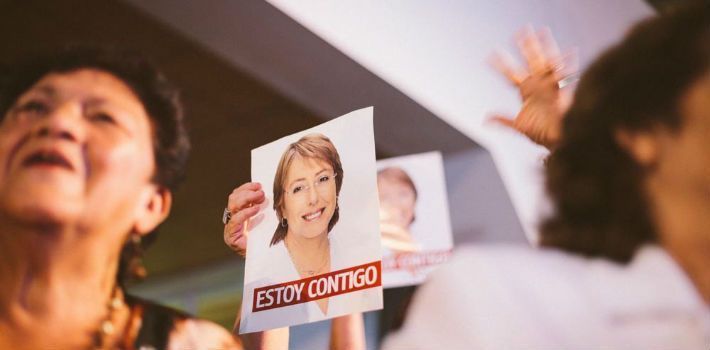
EspañolElections in the Southern Cone of the continent have once more given victories to progressives. Following the triumph of Michelle Bachelet in Chile a few months ago, Dilma Rousseff has imposed herself on Brazil by a narrow margin for another term of four years, and Tabaré Vázquez will almost certainly win the second round of Uruguay’s presidential election. Elsewhere, Evo Morales triumphed a few weeks ago in Bolivia, doing so by a wide margin.
The combined factors that have produced these results are, naturally, many and varied. However, we can see underlying tendencies that help explain the electoral strength of progressivism in these, and other, Latin-American countries.
Why do the electorates of our region almost always prefer politicians who lean towards various forms of socialism and interventionism? How can we explain the fact that populists — of the kind that exist in Bolivia, Nicaragua, and Ecuador — always receive the support of a significant chunk of the electorate, despite their self-aggrandizing style and disregard for political and civil liberties?
The answer isn’t simple, but it’s found in the aspirations of a broad sector of the electorate, the poorest, and their attitude towards the governments they choose.
This broad swath of voters think that the state, by definition, is a machine to grant them financial benefits — the more tangible, the better. Those social programs that hand them direct support, in money or food, are the favorites of those who think that wealth (even if only in small doses) can be transferred into their hands without any more effort on their part, merely by voting for who offers more.
In the case of Brazil, the inclination of these voters has been palpable. Rousseff, as with former President Luiz Ignácio “Lula” da Silva, has promoted a discourse that serves to strengthen such aspirations of the electorate, or at least the fraction of it who are oblivious to the blatant problems of their government: inflation of more than 6 percent, almost complete economic stagnation, and widespread and proven corruption cases in the highest levels of the ruling class. Further, one can remember the open support the previous president gave to the authoritarian regime of Hugo Chávez in Venezuela — a clear symptom of the little worth that he and his Workers’ Party (PT) placed on truly republican forms of government.
The reasoning behind these majorities is simple: transparency in public spending doesn’t matter, nor whether the economy is doing well or badly. What interests these voters is the maintenance of the paternalistic attitude that extends public largesse. Meanwhile, they rally behind demagogic rhetoric that favors the poor over the rich — a veiled illusion to a Marxist war between the classes warfare since, which progressives are careful not to speak about directly.
It’s true that, from the point of view of the data, the portion of the citizenry who perceive the full magnitude of the damage that successive Workers’ Party governments have caused Brazil is almost equal in size: a distrustful market slumped upon the awarding of a prolonged mandate to Dilma, which prompted the reelected president to take a conciliatory and accommodating tone. But in the prevailing form of democracy, it matters little if you take 1 or 49 percent of the votes: the winner takes all.
The blame, all things considered, doesn’t lie with the politicians, who are always denigrated and accused of being corrupt, inefficient, or simply incompetent: they respond to what their electorates want. They’re sensible to the demands that Brazilians, Uruguayans, Bolivians, or Venezuelans call for, the power of the public.
If the people want subsidies, bombastic rhetoric and speeches laden with promises, well, here they are.
As long as we have electorates that are primitive in their demands, as long as one part of the population thinks that, through politicians, they can live as others do, rabble-rousing and unsophisticated politicians, corrupt as always but ready to do what the people want, will continue to exist.
We shouldn’t complain, therefore: we have the politicians that our electorates choose, deliberately, without reservations. And, because of this, we have democracies that look too much like the military and authoritarian regimes of times past.
Translated by Laurie Blair. Edited by Fergus Hodgson.
 Versión Español
Versión Español












